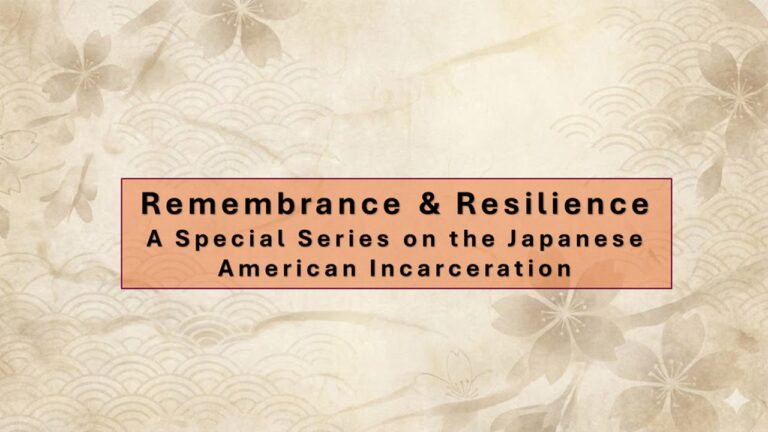National Association for the Practice of Anthropology
sNAPAshots: Riall Nolan

This work is licensed under a Creative Commons Attribution-NonCommercial-ShareAlike 4.0 International License.
Transcript
Interviewer 0:00
[On Screen Image: NAPA Logo] Welcome to sNAPAshots: conversations with practicing, professional and applied anthropologists. Let’s meet our next guest, Riall Nolan. How did you get interested in anthropology?
Riall Nolan 0:21
I, as a kid, I was very adventurous. I was constantly interested in what’s over the next hill. I would keep going. I would walk miles during the day just to sort of see what it would look like. And I was a bricoleur, meaning that I liked to build things. And I like to take things apart to see how they work. And I would often try and put them back together again. And sometimes that was more successful than at other times, but I always had this idea…this curiosity about how are things put together. And so I think those two characteristics set me up for when I stepped off the plane as a Peace Corps volunteer in West Africa, and I opened my eyes, and I thought, Oh, wow, look at all this stuff. And I said about, you know, learning the language, because I wanted to talk to people. I was just I was fascinated with what was going on. And it wasn’t easy. You know, all volunteers will tell you, you know, you go through tough periods, but man, I enjoyed every bit of it. I’ll tell you, I did, once I once I understood that language was the key to understanding this new world. And I with the language, I could go anywhere, do anything, talk about anything, wow. I just kept going,
Interviewer 1:42
How has the anthropological perspective or training enhanced your contribution to your workplace?
Riall Nolan 1:50
You know, it’s, it’s, it’s, it’s extremely empowering. Anthropology is, I mean, it’s portable, you know, you can do it anywhere. It’s scalable, and it’s very adaptable. I mean, you can add you add things to it all the time. I’m constantly bolting onto my anthropology, other sorts of things that you can learn. It trains you to look beyond the immediate. It trains you to explore antecedents, causes, connections, you know, to develop that contextual understanding. And it’s…it does provide answers. You know, I, if I, if I’m required to give answers, I can give answers. But what it’s really good for, as all of us know, is surfacing some of the salient questions, some of the salient issues and concerns. And sometimes these are not things that people have necessarily thought through before, or maybe they haven’t thought through in a full sort of a way. So as one of my colleagues once said, we tend to render situations three dimensional and allow people to look at things and to turn them over and see them from different angles, and that’s extremely useful if you’re trying to actually solve a complex problem. So you know, the questions are the important thing, and the other thing that it helps you do is decide where the parts go. You can sort of see how things fit together a little bit better. We’re not perfect at it, but we’re better at it than a lot of people are, and you don’t find that out until you start practicing and start talking to people.
Interviewer 3:36
Was there a moment that changed the way you practiced anthropology?
Riall Nolan 3:40
We got invited. I was at the University of Pittsburgh at the time, in the School of International Public and International Affairs, and we got invited to do a project in the newly emerging Former Soviet States on international relations, teaching international relations, and I got put in charge of this. My my Dean and I were very close, and he was a good he was a supportive guy, and he and I worked very well together. And so we designed this, um, he was, he’s trained in political science, and I was an anthropologist, and I got to manage this entire project, start to finish, and do it right. We did it right for the first time in my entire life. Most development anthropologists get invited into a development project, either too late to have a fundamental impact, or they get brought in to try and clean it up. And very few of us ever get to the point where we can actually control the process. And then the other thing about the way an anthropologist does projects is they do them more slowly than most people would like. They spend a lot of time sort of at the front end, you know, finding stuff out, you know, figuring out what the context is, and that makes everybody else in the place very impatient. We can’t do that. We don’t have time, we don’t have the budget, we’ve got deadlines. And so they rush into stuff, and they make assumptions all the time. It’s constant pressure to hurry up and do stuff really too fast? Well, this time, we did not do that. This time we spent months and months and months traveling out to the former Soviet Union, making contacts with people sitting across tables from…I don’t drink, fortunately, because if I did, I would probably have been hospitalized all the vodka, but got drunk, all the caviar, all the stuff that got done, and we talked and we talked and we talked, and finally we figured out, here’s how we should be doing this. Here’s who our partners should be, and here are the first steps. We could not have done that the way we did it, without all of that pre work. So the project was an enormous success. I say that without reservation, everybody thought it was just great. And at about the same time, Janine Wedel’s book on collusion and culture in Eastern Europe came out, which talked about how aid had kind of completely dropped the ball on Eastern European aid. At about the same time we were we were in some of the main cities along with these aid guys, and we decided really early on we didn’t want anything to do with them, and so we stayed away, and we had our own sort of way of doing things, and it worked out extremely well. I’m very proud of that project, because it was a proof of concept. It was like, if you do it this way, you’re going to get good results. And we did, and people recognized that. I remember my finest moment came when the aid mission director in Bulgaria said to me, he said, You know, I’ve been watching this project for the last three years. It was a five year project. He said, it’s the most impressive thing I’ve ever seen. He said, AID could never do anything like and I just nodded, and I said, thank you very much. That’s That’s nice to hear.
Interviewer 7:04
What types of challenges do you experience as a practicing anthropologist?
Riall Nolan 7:08
I mean, I don’t see much difference between going off to some part of West Africa where I haven’t been before, and introducing myself and sort of starting to talk to people about whatever it happens to be, and going into a meeting room with a bunch of people who kind of look like me but don’t necessarily think like me at all, and exploring what they’re what they’re thinking about, what’s going on with them. I think the classroom doesn’t do a very good job with that. And I don’t think that a lot of our training materials do a very good job with it. There’s been this tendency, as you know, in anthropology, especially the older you know, a generation or two ago, to mystify fieldwork, to make it seem as if you know, I came back and now I know all this stuff, and the process of getting there was never fully discussed until quite recently, and not very much now, really. So on the one hand, a lot of the material we have is kind of a just so story, which doesn’t tell you very much about how you found that stuff out, or how you came to those insights or those realizations. The other thing is, the classroom isn’t real. It’s an artificial, bounded situation, and it’s excellent for certain things and not so good for others. And so I think one of the only ways to acquire this stuff is to get people out of the classroom and into the community, whatever that happens to be. It can be any number of situations, but out of the classroom, involved with with other kinds of people. And that’s why programs that involve an internship or an assignment or a co-op session are so much more valuable than, say, a field school where you go down and sit in a Guatemalan jungle for a week and listen to your own professor talk about, I don’t know, you know morphemes and lexemes.
Interviewer 9:20
[On screen image: scorpion] Thank you, Ryle, for sharing your experience as a practicing professional and applied anthropologist. For more sNAPAshots, find us at PracticingAnthropology.org, LinkedIn, meta and x.
Credits 9:34
PRODUCED BY Niel Tashima Cathleen Crain Joshua Liggett
DIRECTED BY Reshama Damle Suanna Crowley
EDITED BY Whitney Margaritis
CREATIVE ASSISTANT Juana Lozano
MUSIC “Chilling” by Popoi via SoundCloud
ADDITIONAL FOOTAGE VIA PEXELS BY AAdailton Batista Andrew Kota cottonbor studio Enrique Hoyos Kampus Production Kelly Kindel Media Martina Tomsic Pavel Danilyuk RDNE Stock Project Yan Krukau Speech Bubble by Animationvideo via Veceezy
Many Thanks to NAPA’s Governing Council for supporting sNAPAshots Conversations with Practicing, Professional, and Applied Anthropologists NAPA is a section of the American Anthropological Association
NAPA is seeking volunteers to join the sNAPAshots project. We’d love to hear from YOU!
Contact us at: ntashima@ ltgassociates.com
Riall Nolan 9:35
[Outtakes] And I think at that point you have to be really careful not to come across as a smart ass, because when you work with engineers or doctors, the first thing you find out is that they’re professionally touchy and proud of themselves, and they know a lot, and so do we, but we have to be kind of careful, and we have to fit those pieces in more. Are they? Where do they go? And I think that’s easy to do once you once you get the hang of it. I mean, you might have one or two bad experiences being spoken to by an engineer, and then you learn, okay, I can. I need to do this a different way. And so it’s not necessarily taking a back seat. It is simply learning how to talk to someone who has a slightly different mindset. [On screen image: scorpion with word bubble saying “I knew you were watching me!”]
Interviewer 10:28
[On screen image: NAPA Logo] sNAPAshots.
Transcribed by https://otter.ai



![[NAPA Logo] sNAPAshots: Conversations with Professional, Practicing, and Applied Anthropologists. Rosalie Post, Design Anthropologist, Co-founder of NAMLA. PracticingAnthropology.org Bluesky, X, Meta, LinkedIn, and Youtube Logos](https://practicinganthropology.org/wp-content/uploads/Rosalie-Post-LinkedIn-Flyer-768x768.jpg)